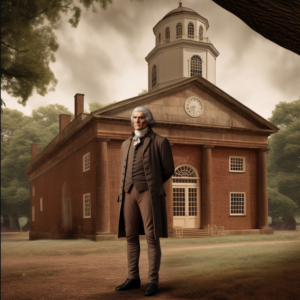 With special guest Longinus, P&C drink and review Ruby Redbird, by Shiner, then discuss William Faulkner.
With special guest Longinus, P&C drink and review Ruby Redbird, by Shiner, then discuss William Faulkner.
They start with some brief biographical info on Faulkner, then discuss three of his most famous short stories. Two features that are common in all of Faulkner’s work are (1) a lack of chronological time, and (2) concealing things from the reader.
“A Rose for Emily” is a disturbing story about an old woman in a fictional southern town. It starts with her death, and then jumps back and forth in time, exploring different aspects of her life. The surprise ending is not to be missed.
“Barn Burning” is a very different tale. It starts with a trial of Abner Snopes for allegedly burning down a neighbor’s barn. Snopes is forced to leave town, but continues his reprobate behavior in the next town and gets his family trouble. The story is mostly about the trials of Sarty, his young son, who has to deal with the disreputable conduct of his father.
“Red Leaves” is the strangest of the three. It’s set in Chickasaw territory, and relates how they dealt with succession of leadership in their tribe, and how to honor their dead leader. The slave of the dead leader tries to run away, but is eventually captured. It’s not a story for children.
 Are Aliens going mainstream?
Are Aliens going mainstream?  P&C drink and review Wexford Irish syle cream ale, then discuss the need for men to go into the trades, and one particular school that trains them.
P&C drink and review Wexford Irish syle cream ale, then discuss the need for men to go into the trades, and one particular school that trains them.  P&C drink and review
P&C drink and review  The boys drink and review
The boys drink and review  P&C drink and review That Shiz Slaps by Aslin Beer Company, then discuss the amazing life and career of Sir Isaac Newton.
P&C drink and review That Shiz Slaps by Aslin Beer Company, then discuss the amazing life and career of Sir Isaac Newton.  The boys drink and review a disappointing homebrew, then discuss the 1st Amendment and the separation of church and state.
The boys drink and review a disappointing homebrew, then discuss the 1st Amendment and the separation of church and state.